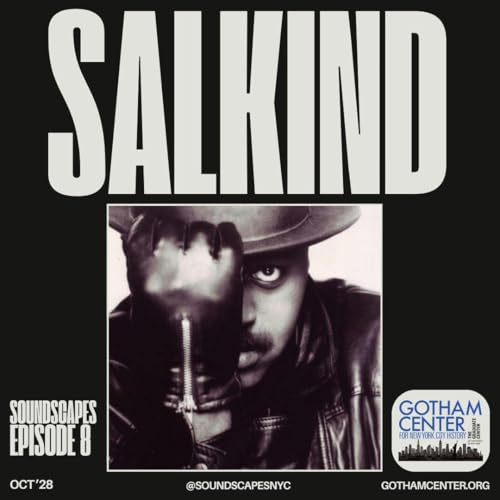In the penultimate episode of season 2 of Soundscapes NYC, hosts Ryan Purcell and Kristie Soares sit down with acclaimed historian Alice Echols, author of Hot Stuff: Disco and the Remaking of American Culture. Echols—who holds the Barbra Streisand Chair of Contemporary Gender Studies at the University of Southern California—unpacks how disco not only mirrored but actively shaped the social, racial, and sexual revolutions of 1970s New York City. Echols is the author of several books that have framed the way we understand the history of the 1960s and 1970s, and particularly the way music has shaped society at the intersection of gender, sexuality, and race. The conversation begins with Echols’ newest research, drawn from her forthcoming book Black Power, White Heat: From Solidarity Politics to Radical Chic, which reexamines interracial activism and allyship during the Black Freedom Movement. From the Angela Davis trial to the alliances formed within SNCC and the Black Panther Party, Echols traces how solidarity both flourished and fractured across the era. Turning to disco, she considers disco’s uneasy place in Black and queer cultural history. She notes how disco was created by and for Black audiences, while also being rejected by many in the Black music industry, like James Brown, for being “politically empty.” Through figures like Nile Rodgers, Grace Jones, and Sylvester, Echols argues that disco’s lush orchestration and sensual performances reflected radical redefinitions of gender, sexuality, and Black masculinity. With musical excerpts woven throughout, Purcell and Soares guide listeners through the sonic textures of disco—its roots in funk and soul, its resistance to genre boundaries, and its capacity to move bodies and politics alike. Learn more about your ad choices. Visit megaphone.fm/adchoices Support our show by becoming a premium member! https://newbooksnetwork.supportingcast.fm/sound-studies
Show More
Show Less
 Nov 25 20251 hr and 8 mins
Nov 25 20251 hr and 8 mins Nov 11 20251 hr and 1 min
Nov 11 20251 hr and 1 min 1 hr and 6 mins
1 hr and 6 mins 1 hr
1 hr 47 mins
47 mins Nov 4 20251 hr and 34 mins
Nov 4 20251 hr and 34 mins Oct 28 202559 mins
Oct 28 202559 mins Sep 30 20251 hr and 2 mins
Sep 30 20251 hr and 2 mins
